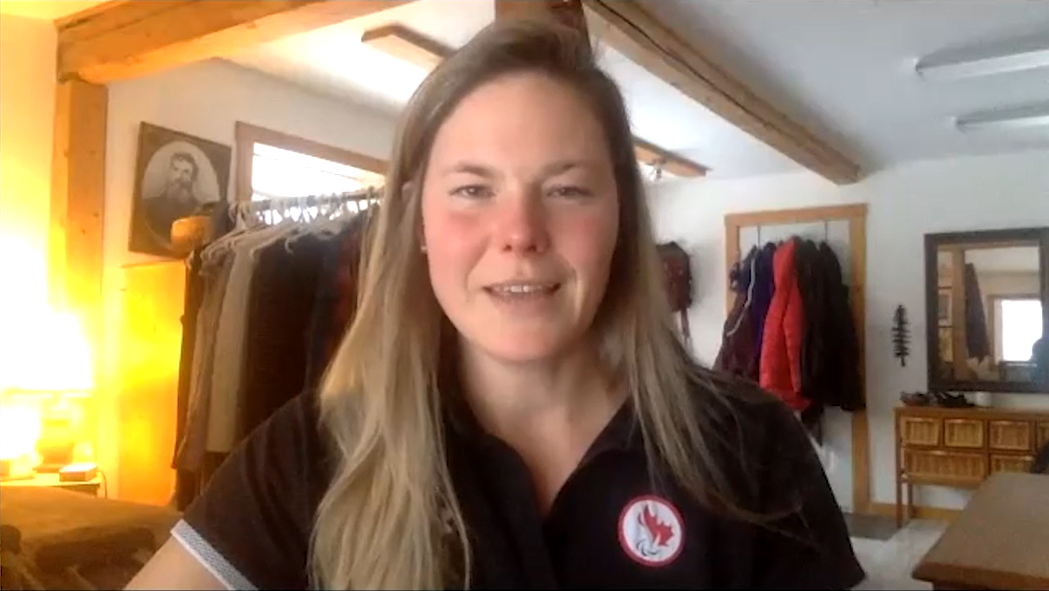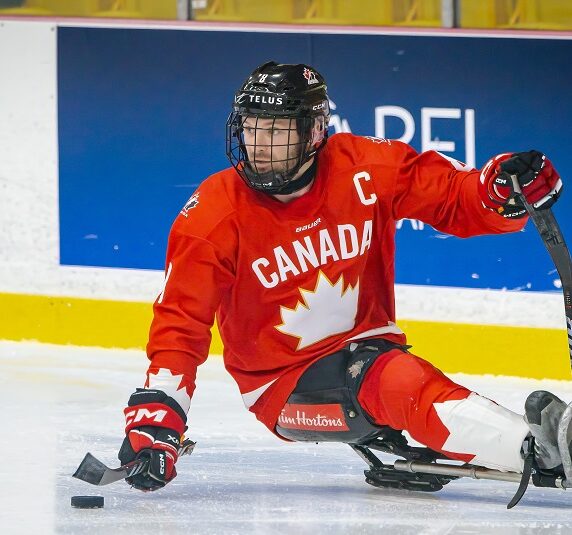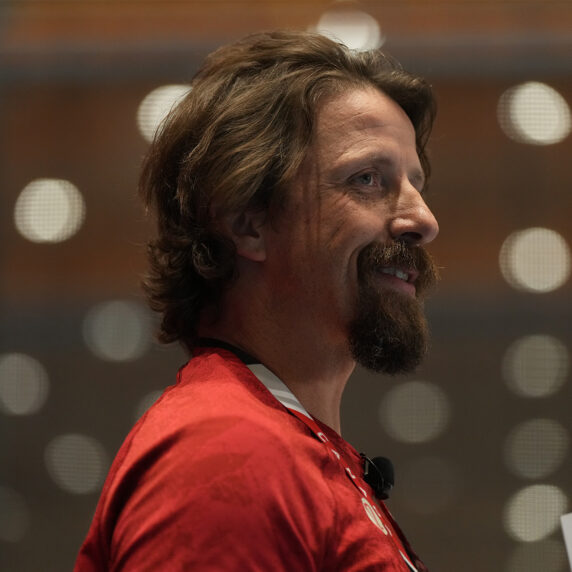Chefs de mission summit for International Day of Persons with Disabilities
Stephanie Dixon and Josh Dueck share candid thoughts on life with a disability
Stephanie Dixon and Josh Dueck share candid thoughts on life with a disability

Stephanie Dixon and Josh Dueck are accomplished individuals, both as athletes and in their other pursuits.
Canada’s chefs de mission for the next two Paralympic Games would not let anyone or anything stand in their way to achieve their goals. Their dogged determination and road to success provide valuable lessons for both people who have a disability or are able-bodied.
But their paths have not been without challenges. And for International Day of Persons with Disabilities, Dixon and Dueck – two of Canada’s greatest Paralympians and leaders within the Paralympic Movement – spoke directly about their personal experiences and opinions on a variety of topics, such as the perception of people with a disability, the impact of the Paralympic Movement, travelling internationally with a disability, and their hope for the future.
For Canadians with a disability, the situation has greatly improved over the years but there is still a long way to go. And for some international counterparts, there unfortunately can be even more challenges, with more barriers and discrimination, and less accessibility and acceptance.
But Dixon and Dueck agree, the first step towards a satisfied life for a person with a disability is to accept who they are. And both chefs learned that’s not easy, whether you were born with a disability like Dixon, or acquired one later in life like Dueck.
Dixon says she didn’t know anyone else with a disability when she was younger. The 36-year-old, Canada’s chef de mission for Tokyo 2021 and a 19-time Paralympic Games medallist in swimming, was born missing her left leg.
“I really struggled with loving and accepting who I was, what I looked like, being a woman with a disability, and I don’t want anyone to feel ashamed of who they are,” said Dixon. “I want to be part of a movement that’s creating role models for everybody and allowing all children to see themselves in other people and in people who are doing amazing things.
“What I would say to my younger self is ‘you are beautiful and powerful just as you are’.”
Dueck, 39, was an accomplished freestyle skier when he overshot a hill in a 2004 crash, an accident that resulted in paraplegia. He also faced an uphill battle early in his new life.
“You definitely get different reactions from people when they don’t know you and they just see the mobility device,” said the Vernon, B.C. resident and 2014 Paralympic Games champion in the men’s sit skiing super combined race.
“Often people would judge the way I get around before giving me a chance to get know them for who I am. That definitely can be pretty disheartening at times.”
[Story continues below]
Entering the sports world would prove a salvation for both athletes. It not only showed what they could achieve but turned their focus to something concrete and allowed them to set personal goals and immerse themselves with others.
“If it wasn’t for the Paralympics, I’m not sure I would have been able to leave that little bit of a cave I was in,” said Dueck, named Canada’s chef de mission for the Beijing 2022 Paralympic Winter Games on Wednesday. “I got stuck in that for a while, and if it wasn’t for the Paralympic Movement, I don’t know where I would be.”
Dixon, who took on double chef duties, first leading the Canadian team last year at the Parapan American Games in Lima, grew up not knowing about the existence of the Paralympic Games before it ultimately was a game-changer.
“The Paralympic Movement actually was quite instrumental in my growth as a person with a disability, as well as the global acceptance of disability – and not just acceptance, but celebration,” she said from her home in Whitehorse.
Dixon and Dueck say they would still like to see more changes in both Canada and internationally and they know the infrastructure is in place to pave more roads for equality.
“My dream is that this world and all of its amazing landscapes, technology, innovation, sport, music, culture and academics, everything that makes this world so beautiful and so magical, is accessible to every human,” said Dixon.
“I believe in universal accessibility and that each and every one of us will thrive even more when every single one of us has an opportunity to participate.”



"*" indicates required fields